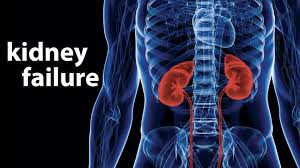- Home
- Editorial
- News
- Practice Guidelines
- Anesthesiology Guidelines
- Cancer Guidelines
- Cardiac Sciences Guidelines
- Critical Care Guidelines
- Dentistry Guidelines
- Dermatology Guidelines
- Diabetes and Endo Guidelines
- Diagnostics Guidelines
- ENT Guidelines
- Featured Practice Guidelines
- Gastroenterology Guidelines
- Geriatrics Guidelines
- Medicine Guidelines
- Nephrology Guidelines
- Neurosciences Guidelines
- Obs and Gynae Guidelines
- Ophthalmology Guidelines
- Orthopaedics Guidelines
- Paediatrics Guidelines
- Psychiatry Guidelines
- Pulmonology Guidelines
- Radiology Guidelines
- Surgery Guidelines
- Urology Guidelines
Many Kidney Failure Patients Lack Advance Directivies Near The End of Life: ASN

Highlights
- Among nursing home residents in the last year of life, patients with kidney failure were far less likely to have advance directives that put limitations on treatments and designated surrogate decision makers compared with other nursing home residents with serious illnesses.
- Advance directives with these components were associated with a lower use of intensive interventions at the end of life.
- Nearly all kidney failure patients with an advance directive putting limitations on treatment received end-of-life care that was concordant with their preferences.
More than 80,000 Americans die each year while receiving dialysis therapy for end-stage renal disease.
Washington : A new study indicates that many nursing home residents receiving dialysis do not have advance directives that sufficiently address endof-life treatment decisions. Those with advance directives that put limitations on treatments and designated surrogate decision makers had fewer hospitalizations, intensive procedures, and inpatient deaths, and they were more likely to use hospice and discontinue dialysis prior to death. The study, which appears in an upcoming issue of the Clinical Journal of the American Society of Nephrology (CJASN), found that nearly all patients with an advance directive requesting treatment limitations received end-of-life care that was in line with their preferences.
Advance directives outlining individuals’ preferences related to end-of-life care are often promoted for patients with serious illnesses such as kidney failure as a means to avoid interventions that are unwanted or of limited benefit. Little is known about the relation between the content of advance directives and later treatment decisions among kidney failure patients, however.
To investigate, Manjula Kurella Tamura, MD, MPH (VA Palo Alto Health Care System and Stanford University) and her colleagues examined the prevalence and content of advance directives among 30,716 nursing home residents with end-stage renal disease (ESRD), and30,825 nursing home residents with other serious illnesses during the year before death. The investigators also linked the content of advance directives to Medicare claims to determine which treatments ESRD patients received in the last month of life.
In the last year of life, 47% of patients with ESRD vs. 59%-70% of patients with other serious illnesses had any form of advance directive. In addition, 36% of nursing home residents with ESRD had a treatment-limiting directive, 22% had a surrogate decision maker, and 13% had both. These estimates were 13%-27%, 5%-11%, and 6%-13% lower, respectively, than for patients with other serious illnesses. For patients with ESRD who had both a treatment limiting directive and surrogate decision maker, the frequencies of hospitalization, intensive care unit admission, intensive procedures, and inpatient death were lower by 13%, 17%, 13% and 14%, respectively, and hospice use and dialysis discontinuation were 5% and 7% higher compared with patients with ESRD who lacked both components.
“We found that advance directives indicating treatment limitations and/or documenting surrogate decision makers were associated with less intensive end-of-life care among nursing home residents with ESRD, but these were in place much less often than for nursing home residents with other serious illnesses,” said Dr. Tamura. “Because the vast majority of patients with a treatment limiting directive received care that was consistent with their advance directive, our findings suggest that efforts to increase engagement in advance care planning and expand the use of advance directives among patients receiving dialysis may offer untapped opportunities to better align end-of-life care with patient preferences and values.”

Disclaimer: This site is primarily intended for healthcare professionals. Any content/information on this website does not replace the advice of medical and/or health professionals and should not be construed as medical/diagnostic advice/endorsement or prescription. Use of this site is subject to our terms of use, privacy policy, advertisement policy. © 2020 Minerva Medical Treatment Pvt Ltd